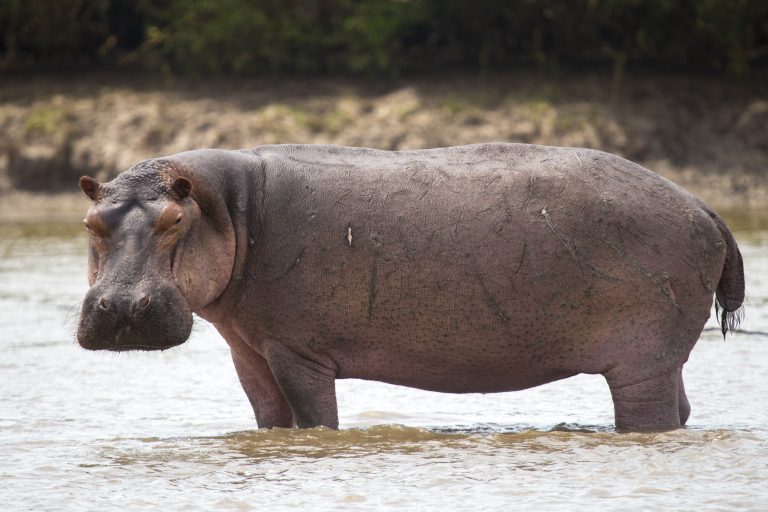The Nasarawa State Government says it is working to preserve the population of hippopotamus in the state to prevent the animals from extinction.
The Director, Veterinary Services in the state’s Ministry of Agriculture, Dr Abdullahi Musa stated this when he spoke on Sunday in Lafia.
The entire population of the hippopotamus in the world is estimated at between 125, 000 and 148,000, according to some statistics.
Musa said that the population of the animals had dropped to about 13 in the state from the previous figure of 20 due mainly to the activities of hunters and poachers.
“Nasarawa State is among the few states in Nigeria, where you have hippopotamus, they are found in the Ugah community in Lafia..
”I think the other state where you find them is Kebbi, as they are found in Yauri in Birnin-Kebbi,” he said.
Musa said that the population of the hippopotamus was being threatened by the activities of hunters and poachers who kill them for meat.
“The hippos live in three lakes – Oble Lake in Ugah, Feferuwa Lake, and Alongside Lake, all in Lafia Local Government Area(LGA) of the state.
“Their number has depleted over the years due to the activities of hunters with only about 13 hippos left in the area at the moment,” he said.
Musa added that the State Government had taken some drastic measures to preserve the hippopotamus from extinction because of their potential as a source of tourism.
He said that the government had also made contact with the community harbouring them to create awareness about their importance.
“The government has reached out to the community leaders including the traditional institution to sensitize the people against hunting them.
“Villagers have also been educated on the need to avoid planting their crops near their locations.
“In addition, the government has approved the engagement of some former hunters as rangers to protect the hippopotamus from poachers and from straying into people’s farms.
“These rangers were also trained by the Ministry of Agriculture and equipped with dane guns, to scare away the hippos whenever they stray from their routes around the lakes into farms,” he said.
Musa added: ”The hippos are scared of human beings that is why you hardly see them outside during the day.
“They usually come out at night and have a route around the lakes where they go for grazing.”
He said that the ministry had cultivated about 20 hectares of rice and potatoes around the lakes for the hippopotamus to feed on, as part of the preservation efforts.
He, however, said that some dry-season farmers had ignored the government’s caution against farming near the habitat of the animals, thereby causing some problems.
“The hippos are under the protective custody of the state government and are not destroying people’s farms as been reported in some quarters.
“The government plans to create a games reserve like we have in Yankari, Bauchi State, to preserve the hippopotamus from going extinct.
“We are also to make their location a tourist destination for foreigners delight,” he said.
Also speaking, Alhaji Abdulkarim Ubandoma, the Village Head of Ugah, acknowledged that the presence of the animals was a blessing to the community.
Ubandoma said, however, that there were occasional reports of the hippopotamus straying into people’s farms in Nasarawa and destroying their produce during the rainy season.
He said that the hippos were rarely seen during the dry season except in the Oble lake adding that they do not attack people or go into their farms.
Ubandoma said that based on reports from farmers in Nasarawa on the suspected destruction of farms by the hippos, the government set up an investigative committee which led to the employment of some people as rangers in the community to protect the hippos to prevent them from straying into farms during the rainy season.
NAN


